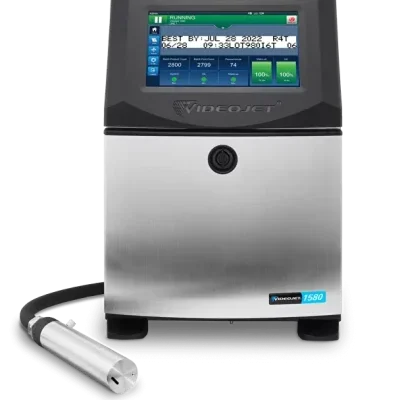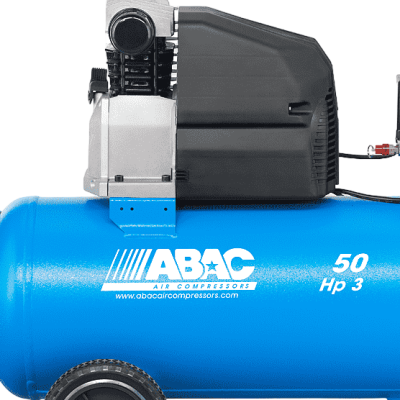Marketing channels for any type of business
In today’s competitive landscape, leveraging diverse marketing channels is crucial for any business’s success. Creating omni-channel strategies ensures that your message reaches a broader audience, engages customers at multiple touchpoints, and enhances brand visibility. Utilizing various channels like outbound, inbound, paid, referral, and affiliate marketing allows for a more robust and adaptable approach. This diversity not only maximizes lead generation and conversion rates but also mitigates the risks associated with relying on a single channel.
By integrating multiple channels, businesses can achieve consistent growth and stay ahead in their industries.
Outbound Marketing

Cold Calling
Definition: Cold calling is the practice of contacting potential customers by phone without prior interaction. It involves sales representatives reaching out to prospects to introduce products or services, with the goal of generating interest and converting these calls into sales leads
Best Industries: B2B services, real estate, financial services, insurance.
Best Use Cases: Cold calling is particularly effective for industries that offer high-value products or services that require detailed explanations and personalized pitches. It is often used in B2B settings where establishing a direct line of communication can lead to valuable business relationships. For instance, in real estate, cold calling can be used to reach potential buyers or investors, while in financial services, it can introduce complex investment products to affluent individuals. Additionally, cold calling works well for telemarketing and business development in industries with longer sales cycles and high-cost products, such as enterprise software, industrial equipment, and professional services. This approach is ideal for products that require a significant investment of time and money, where personalized outreach can help build trust and facilitate the decision-making process.
Direct Mail
Definition: Direct mail marketing involves sending physical promotional materials such as brochures, catalogs, postcards, or letters to a targeted list of potential customers.
Best Industries: Retail, real estate, hospitality, automotive.
Best Use Cases: Direct mail is useful for creating personalized and tangible marketing efforts. It works well for local promotions, special offers, and events. Retailers can use direct mail to send exclusive discounts or new product announcements to their customer base. Real estate agencies can send property listings to potential buyers in a specific area. The hospitality industry can promote special packages or new services, while the automotive sector can introduce new models or maintenance offers. Direct mail is particularly effective when integrated with digital follow-ups, enhancing the overall campaign reach.
Print Ads
Definition: Print advertising includes placing ads in newspapers, magazines, brochures, and other printed publications to reach potential customers.
Best Industries: Automotive, fashion, luxury goods, local services.
Best Use Cases: Print ads are ideal for building brand awareness and reaching specific demographic segments. They are often used in industries where visual appeal and brand prestige are important. For example, the fashion industry uses print ads to showcase the latest collections in high-end magazines. The automotive industry advertises new models and special deals in trade publications. Luxury goods brands leverage print ads to maintain their upscale image and reach affluent customers. Print ads can drive traffic to stores or websites and complement other marketing efforts, such as social media campaigns and email marketing, creating a multi-channel approach to engaging potential customers.
Inbound Marketing
Content Marketing
Definition: Content marketing involves creating and distributing valuable, relevant, and consistent content to attract and retain a clearly defined audience, ultimately driving profitable customer actions.
Best Industries: Technology, education, healthcare, professional services.
Best Use Cases: Content marketing is ideal for industries where educating the customer is crucial. In technology, businesses can create in-depth guides, whitepapers, and case studies to showcase their expertise and help potential clients understand complex products or services. In education, creating valuable content like e-books, webinars, and how-to videos can attract students and educators looking for resources. Healthcare providers can use content marketing to offer helpful information on health topics, establishing themselves as trusted sources. Professional services can share insights, trends, and expert advice through blogs and articles to build credibility and attract clients.
SEO (Search Engine Optimization)
Definition: SEO is the process of optimizing a website and its content to rank higher in search engine results pages (SERPs), driving organic traffic to the site.
Best Industries: E-commerce, local businesses, real estate, online services.
Best Use Cases: SEO is critical for businesses that rely on online visibility and search engine traffic. E-commerce sites can optimize product pages and create blog content to rank for relevant keywords, driving organic traffic and sales. Local businesses can optimize their websites and local listings to appear in local search results, attracting customers in their area. Real estate agencies can use SEO to rank for property-related searches, generating leads from potential buyers and sellers. Online service providers can optimize their websites and create content to rank for service-related queries, driving qualified traffic and conversions.
Social Media
Definition: Social media marketing involves using social media platforms to promote products or services, engage with audiences, and build brand awareness.
Best Industries: Fashion, retail, entertainment, hospitality.
Best Use Cases: Social media is ideal for industries that benefit from visual content and direct engagement with customers. Fashion brands can use social media to showcase new collections, engage with followers, and run promotions. Retail businesses can share product updates, sales, and customer stories to build a loyal community. The entertainment industry can use social media to promote events, share behind-the-scenes content, and engage with fans. Hospitality businesses can showcase their locations, share customer experiences, and promote special offers to attract visitors.
Blog Posts
Best Industries: Technology, finance, travel, education.
Best Use Cases: Blogging is effective for industries that need to provide detailed information and build authority. Technology companies can share product updates, industry news, and technical guides to attract a tech-savvy audience. Finance companies can offer insights, tips, and analyses to educate customers on financial matters. Travel businesses can create destination guides, travel tips, and personal stories to inspire and inform potential travelers. Educational institutions can share research, educational resources, and success stories to engage with students and educators.
Webinars
Definition: Webinars are live or recorded online seminars that provide educational content, demonstrations, or discussions to engage with an audience.
Best Industries: Education, technology, healthcare, professional services.
Best Use Cases: Webinars are ideal for industries where in-depth knowledge sharing is essential. Educational institutions can use webinars to conduct virtual classes, workshops, and informational sessions for prospective students. Technology companies can host product demonstrations, training sessions, and Q&A webinars to engage with their audience and showcase their expertise. Healthcare providers can offer webinars on health topics, treatments, and wellness tips to educate and connect with patients. Professional services can conduct webinars on industry trends, best practices, and expert advice to build authority and attract clients.
Some of my clients' case studies
Referral Marketing
Referral Programs
Definition: Referral programs are structured systems where businesses offer rewards to existing customers for referring new customers. These programs are designed to incentivize customers to promote the brand within their network.
Best Industries: E-commerce, software services, subscription services, telecommunications, and financial services.
Best Use Cases: Referral programs work exceptionally well in industries where customer satisfaction is high, and the products or services are easily shareable.
Word-of-Mouth Marketing
Definition: Word-of-mouth marketing relies on organic conversations about a brand between customers and their networks. Unlike structured referral programs, word-of-mouth marketing is driven by the customer’s genuine desire to share their positive experiences.
Best Industries: Hospitality, luxury goods, automotive, healthcare, and entertainment.
Best Use Cases: Word-of-mouth marketing is particularly powerful in industries where the customer experience is paramount.
Customer Reviews
Definition: Customer reviews are feedback provided by customers about their experiences with a product or service. These reviews are often shared on platforms like the business’s website, third-party review sites, or social media.
Best Industries: Retail, restaurants, healthcare, travel, and technology.
Best Use Cases: Customer reviews are crucial for industries where potential customers heavily rely on feedback before making a purchase decision.
Paid Advertising
Pay-Per-Click (PPC)
Display Ads
Social Media Ads
Sponsorships
Enjoying the ride and want to connect?
Get in touch with me using that red button and we can discuss what you have in mind!
Use this form to book a Call with me
Affiliate Programs
Definition: Affiliate programs are structured systems where businesses offer commissions to affiliates for generating sales or leads. These programs incentivize affiliates to promote the business’s products or services within their networks.
Best Industries: E-commerce, software services, digital products, financial services, and subscription services.
Best Use Cases: Affiliate programs are particularly effective in industries with high online sales potential.
Influencer Partnerships
Definition: Influencer partnerships involve collaborating with individuals who have a significant following on social media or other platforms to promote products or services. Influencers create content that features the business’s offerings, helping to drive awareness and sales.
Best Industries: Fashion, beauty, fitness, travel, and technology.
Best Use Cases: Influencer partnerships are particularly effective in industries where visual content and personal recommendations play a crucial role.
In the fitness industry, brands partner with fitness influencers to promote their products, such as workout gear, supplements, and fitness programs. Influencers share their fitness routines and experiences, inspiring their followers to purchase the promoted products. For instance, brands like Gymshark have grown rapidly by collaborating with fitness influencers.
Travel companies can leverage influencer partnerships to showcase destinations and travel experiences. By collaborating with travel influencers, businesses can create engaging content that inspires their followers to book trips. Hotels, airlines, and tour operators can benefit from the authentic experiences shared by travel influencers.
Co-Marketing Initiatives
Definition: Co-marketing initiatives involve two or more companies collaborating on marketing efforts to promote each other’s products or services. This strategy leverages the strengths and audiences of all partners involved to achieve mutual benefits
Best Industries: B2B services, technology, healthcare, and education
Best Use Cases: Co-marketing initiatives are particularly effective when businesses with complementary products or services collaborate to reach a broader audience.



